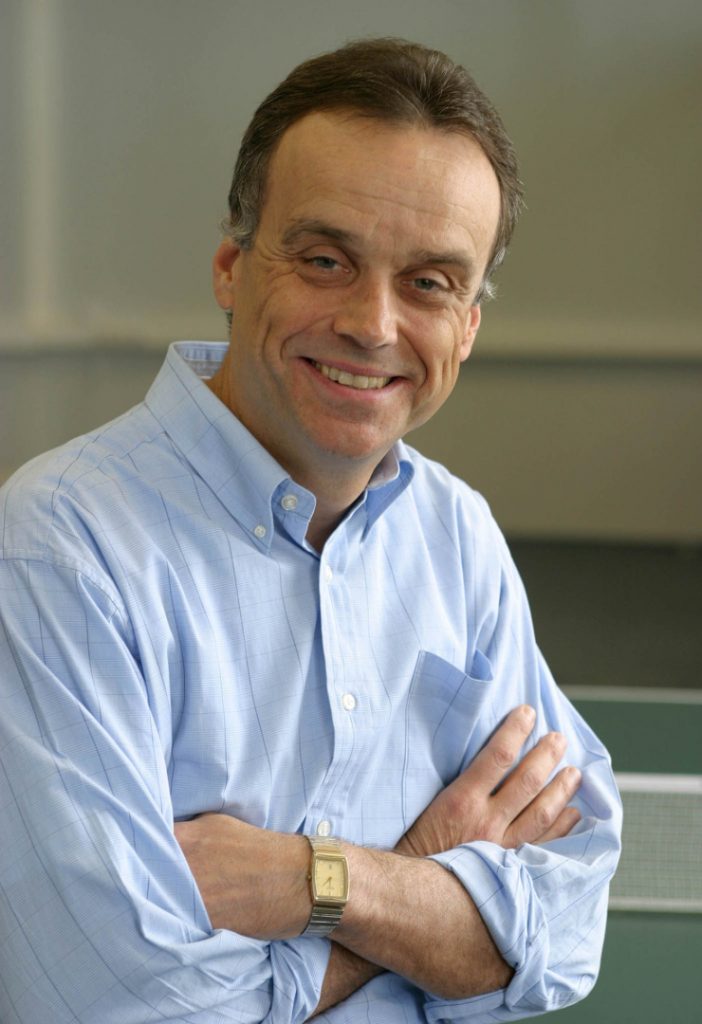
Andrew Nagorski was born in 1947 in Edinburg. His parents had moved there after the outbreak of the Second World War. One year later, the Nagorskis moved to the US, where Andrew’s father took up journalism and wrote about Poland and Europe, and then worked as a diplomat. The Nagorskis lived in such cities as Cairo and Seoul. Andrew Nagorski came back to the US to commence studying History at Amherst College. In 1968 he was also studying at the Jagiellonian University, where he met his future wife, Krystyna.
After graduation Andrew Nagorski became a history teacher in Wayland High School, near Boston. In the 1970s he began an internship and then he was employed as a journalist at “Newsweek”. In 1978 he became a “Newsweek” correspondent in Hong Kong. He was also the chief editor of the Asian region of “Newsweek International” and then he became the chief of the “Newsweek” bureau in Hong Kong. At the beginning of the 1980s he became the chief of the “Newsweek” Moscow bureau. In 1982, he was expelled from the Soviet Union for his journalist work criticizing the Kremlin’s policy. Afterwards he moved to Rome and Bonn, where he was the chief of Newsweek bureaus.
In 1988, Andrew Nagorski took a break from journalism to work as a consultant at Carnegie Endowment for International Peace, a think tank promoting cooperation between countries and involvement of the US in international politics. At the beginning of the 1990s he came back to work for Newsweek. He moved to Warsaw where he worked at a branch office. In 1995, he came back to the Newsweek Moscow office. Between 1996 and 1999 he worked in Germany, describing and analysing the German reality after the fall of the Berlin Wall. Starting from 2000 Andrew Nagorski was the editor at „Newsweek International” and has been working on local versions of the magazine. At the time, „Newsweek Arabic”, „Newsweek Polska”, „Newsweek Russia” and „Newsweek Argentina” were created.
Between 2008–2014 Andrew Nagorski was the vice-president of the EastWest Institute, an international affairs think tank. He was also teaching foreign affairs journalism at Bard Colleges Center for Globalization and International Affairs. Andrew Nagorski is chairman of the board of the Polish-American Freedom Foundation, and a member of the Council of Foreign Relations and the Overseas Press Club.
In 2009, the Polish Minister of Foreign Affairs, Radosław Sikorski, decorated Andrew Nagorski with the Bene Merito award for his work as a journalist back in the 1980s and informing the world about the “Solidarity” movement. In 2011, Andrew Nagorski received the Order of Polonia Restituta from the former Polish president, Bronisław Komorowski. In 2014, he received the „Lech Wałęsa Media Award” from one of the “Solidarity” leaders, Lech Wałęsa. For his newspaper reports he received three awards from Overseas Press Club.
Andrew Nagorski is the author of the following historical books and newspaper reports: „Reluctant Farewell: An American Reporter’s Candid Look Inside the Soviet Union”; „The Birth of Freedom: Shaping Lives and Societies in the New Eastern Europe”; „Hitlerland: American Eyewitnesses to the Nazi Rise to Power”, „The Nazi Hunters” and a novel titled „Last Stop Vienna”.
Now Andrew Nagorski lives in St. Augustine, Florida. He still travels, writes and comments for such newspapers as: „The Washington Times”, „Politico”, „Reuters”, „The Wall Street Journal” or „The Huffington Post”.
Interviewed by Edi Pyrek in 2011.
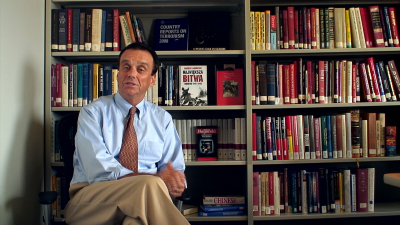
Parents, grandparents, all the Poles, my parents they got married in 1938 in Warsaw, my father was in the army back in 1939 during the September Campaign, and then my grandparents and my mum, they managed to escape from Poland, moved to Paris and then to England, my father, who was in the army, he also managed to reach to France and then to England, where he served in the General Maczek’s Army and… my granddad was a member of the government based in London, acting as a President of the Supreme Audit Office, so obviously it was the anticommunist government and because of the Yalta, there was no return to Poland, and he was sent to the US in 1948, a year after I was born in Scotland. As we got to the US, my father tried various emigration works, including typical such as, selling of pots or encyclopedias, yet it lasted for a while and then, he wrote about the matters happening in Poland, other states, and after the war – in the Central Europe, then he was an American diplomat for ten years, so I was raised, as a child, as a teenager, at different missions, in Cairo, Seoul, Paris, and then I came back to the US to study at the university for four years, but I spent one term at the Jagiellonian University as an exchange student, and there I met my wife, Krystyna, we got married and after graduation, at first I worked as a history teacher in Boston for three years and then I started my journalist career and I managed to get an internship at Newsweek, and then I had a full-time job in the American Newsweek, and began a career as a foreign correspondent to various places, working in Hong Kong, Moscow. In the Soviet era, they expelled me from Moscow, after fourteen months, because they didn’t like what I was writing. Over that period, (I worked) in Rome, when John Paul II was the Pope, so I could have travelled with him as a part of the press corps. And in Washington DC, after 1989 I arrived in Warsaw to the post, where I spent nearly five years and then returned to Moscow again, and after that, to Berlin and New York City. After many years of my journalist career, three years back, I moved from Newsweek to East-West Institute in New York City, which is a an institute for international relations, but I still do my writing, sometimes these are different kind of articles and my books.
- What were you in charge of in Moscow, in Poland, working as a Newsweek’s editor?
- As a foreign reporter I always write about all current issues, so, in most cases, these are, of course, articles about politics, economy, yet I was lucky, as in the 1980ies, I had an opportunity to see from the Soviet perspective how the thighs were going, when Poland introduced Martial Law, I was in Moscow those days, so I could have observed how the Russian authorities presented it, written about people’s response, so… these were various articles, which they didn’t like either, written about different intrigues at the Kremlin, how Brezniew was dying, about grave economic problems of the Soviet Union and, obviously, later on I started following the entire resistance movement in the Central Europe, in Poland, Solidarność, in Czech Republic Harta 77, an independent opposition movement in Hungary, and I found it interesting in that period, to meet these people, all well-known individuals and see how they were moving from jail to top posts in the state governments, after the transformation of 1989. So, to be the witness of these events, to get acquainted with these people, know how it was at the beginning… if someone made a scenario, it would seem to be totally absurd, some people’s dreams that came true with all those obstacles, so I think that it should be remembered from this time perspective, that it was unbelievable, this transformation in the Central Europe, that started, to a large extent, in Poland and got the highest acceleration in Poland.
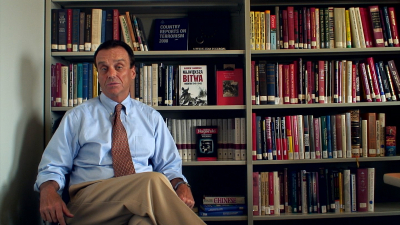
Well, of course, we follow some Polish traditions, starting from the cuisine, sometimes… and always, we have a Polish Christmas Eve at home, my wife invites everyone for, and we share the wafer, and we have all such customs, that are very Polish. Yet, I think that there are some things, that my children appreciate and associate with Poland, but, perhaps, the most important thing is that we try to organize it this way, they have a bit of idea about Poland, the role of the entire Polish history and to make each of them spend some time in Poland, and through these contacts, not let this Poland be so very distant and very abstract. Thus, we do our best to keep this sort of feeling, that … always there is… there are these Polish roots and that these ties with Poland should always be kept in some form.
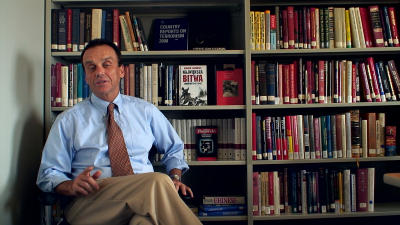
For me, I don’t feel like an emigrant. As I am… I feel an American, as I say, of the Polish origin, I don’t feel, as I have never lived in, let’s say, a Polish district, or taken… I didn’t feel closed in the emigrational world and my parents, who could have walked this way, always avoided it intentionally. They thought that if you were in another country, you needed to get into this life and have friends and… generally, live… the world, you’re living in. But, it doesn’t mean that I didn’t take part in, that I couldn’t have gone to the mass, to the Polish church, or read polish newspapers, or had Polish friends, however it was not like the whole world to me. So, me,… for me, I’d rather watch emigration among other Poles, or Hindu people, or others, these are different stories, how someone enters these societies, who is successful, who is not , yet according to me, the most important thing is not to feel more defensive or offensive due to the fact that you are of this or that origin, but to be more aware of what your roots are, what your family’s roots are and how your living is at this very moment.

I always remember that when I went for the first time to Poland, and it was 1964, I was 16 or 17, and my uncle, Adam Nagórski, who had stayed in Poland… as not much of my family had stayed in Poland, but he had, he was a solicitor, too, and he asked me: “Andrzej, do you feel a Pole, or an American?” „I am American, I was raised in the US, I hold the American citizenship, but I have Polish origins and I feel that this is a part of my identity”. He was deeply dissatisfied, as he wanted to hear that I was a Pole only, that this was the most important thing to me. Well, one thing is that what you’ve got in the US, that you could have… the feeling that you have Polish roots, or no matter what roots, and be like an American, and for me, Poland is always very important in my life and I feel… a consciousness, that my entire family, from both sides, as my parents came from that place, escaped, and as I was growing up this had been some sort of an abstraction for me until the moment I started going there, and then I returned, studied and got married there, of course it deepened my relationships with Poland, and afterwards it appeared that in terms of professional issues, Poland and the Polish language were ultimately crucial to me. I remember I learned French at school and then I lived in France for a year, I always thought that I would be a foreign reporter and French would be very… I would use it. And this was how my parents, grandparents thought, that every educated person should speak French. This is an international language. It was just back in the XIX century, the beginning of the XX century. Later on, it turned out that I hardly ever used my French when working as a foreign reporter, but when I started traveling around the world and I went on purpose to the Soviet Union, and then across the entire East and Central Europe, Polish became very useful, as it helped me to learn Russian, what I found necessary, and then when such a historical event happened, I could, as a correspondent of the American Newsweek.. I could have tracked and become a bit familiar with this society, could have communicate, understood everything what was happening.. and it was really important. So, for me Poland, played a huge role in my life and still does, and… I feel that… it was quite surprising, that this role was so big, since… the role of Poland, Poland in the history of the previous century is… was immense.
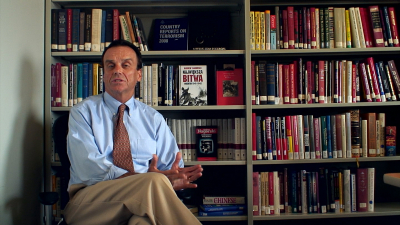
It was at the university years, when I decided to go to Poland for one term. I had been to Poland only once with a short visit, and then I went to the Jagiellonian University in that famous 1968, yet after the March Incidents. It was in September and I spent one term at the Jagiellonian University, and as I had been leaving, my grandma had told me: “Well, you’ll go to Poland, find a pretty Polish girl, get married”. “Grandma, no way”. And, it turned out that she was right. So, Krystyna comes from Poland, she was born in Częstochowa, but she studied in Kraków and we met there, and since that time the Polish roots have extended somehow, and this is why our four children, they speak Polish, like me, making mistakes, yet , for sure, we have kept this Polish language, some sort of a Polish tradition, but everyone has his own career, life, family, here, in the US.

I think that the most important thing is to try to look honestly at our personal history, at the history of someone’s own country, at the history of families and understand, and not to start each conversation with “I am right, or, we are right”, but to be able to… to have solid grounds, some sort of faith in something, not exactly based on religion, but on some values and when it comes to some issues, how to approach them, in an open manner and let’s say, in the history of every country there are also moments we could not be proud of, no matter if it’s America or Poland, but in general we could be proud of, in general we could realize that this is a rich history, we could be proud of, yet we need to be critical where necessary and also look at others, not always pointing out “you did wrong, you hurt us”, although maybe it was true in many cases, but… in each country it goes the same way and if another country tries to have an honest approach towards the history and to relationships between us, no matter if it’s America with another country or Poland with another country, it should be considered a sincere attempt, and we have to try to live with each other, with understanding and the feeling that we are self-assured, but not arrogant.



